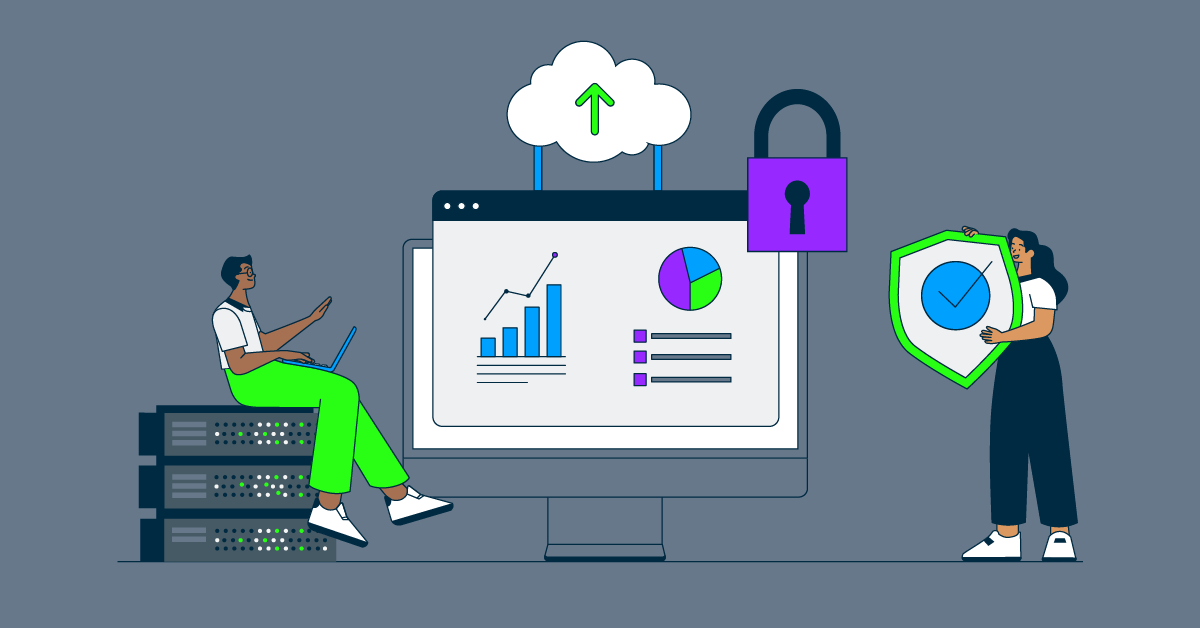When we move our financial data to the cloud, who really controls it?
In boardrooms across the globe, this question has evolved from a technical concern to a strategic imperative. Recent regulatory changes, high-profile data breaches, and increasing scrutiny from stakeholders have made data sovereignty not just an IT issue, but a core business risk that directly impacts an organization's reputation and bottom line.
The shift to cloud computing in finance is no longer a question of "if" or even "when", but of "how fast." According to recent studies, over 90% of enterprises now use cloud services, with financial data increasingly being processed and stored in these environments.
But here's the paradox: while the cloud offers unparalleled efficiency and scalability, it also raises fundamental questions about data ownership, access, and sovereignty. European regulations like GDPR, sector-specific requirements, and even geopolitical considerations now influence how and where financial data can be stored and processed.
What CFOs need isn't just a cloud solution – they need a cloud solution that respects boundaries. Legal boundaries, geographical boundaries, and most importantly, the boundaries set by each individual organization.
Lucanet's data fortress
In many cloud solutions, protecting data relies heavily on the application code being perfect. But what happens when there's a bug? What if a developer makes a mistake? In traditional systems, a single coding error could potentially expose one customer's data to another.
At Lucanet, we've taken a fundamentally different approach. We've built multiple layers of protection that operate independently of our application code. Think of it like a bank vault that has not just one lock, but multiple independent security systems – even if one fails, the others continue to protect your assets.
Every request to access data in our platform must pass through AWS's industrial-strength authorization systems. Each request carries a cryptographically signed token that is stamped with the customer’s unique identifier. This isn't just something that our code checks – it's enforced at the infrastructure level by AWS itself. Even if there were a logic error in our application, the underlying platform would block any attempt to access another customer’s data.
We've essentially made it architecturally impossible for one customer to see another's data. To extend the banking analogy; it's like each customer’s data being stored in a safe deposit box inside the bank vault – no matter what happens inside one box, you simply cannot access another without the right key.
But isolation is only part of the story. Where the data physically resides is another issue that now matters more than ever.
Today, Lucanet ensures that data never leaves its designated geographical region. If you're a German company, your data stays in Germany. If you're bound by Swiss banking regulations, your data remains in Switzerland. This isn't just a feature – it's a fundamental design principle that we've built into every layer of our architecture.
Looking ahead, we're taking this even further. We're preparing to support AWS Sovereign Clouds – specialized cloud regions with additional controls and governance specifically designed for organizations with the highest sovereignty requirements. This means we'll be able to offer options for deployment in cloud infrastructure that's not just physically located in a particular jurisdiction, but also operated under that jurisdiction's complete legal and regulatory framework.
Bring Your Own Key encryption
In the Lucanet platform, data is already encrypted using industry-leading standards, with each customer’s data encrypted in isolation from others. But we recognize that true control means our customers should hold the keys – literally.
With Bring Your Own Key, customers can generate and manage their own encryption keys. We'll never have access to them. Even if someone somehow breached every other security measure – which our architecture makes virtually impossible – they would find only meaningless encrypted data. Without the keys, that data is just digital noise.
This creates an unprecedented level of control. Our customers’ financial data, encrypted with their own keys, remains under their exclusive control. Thinking about the safe deposit boxes in the vault, our customers supply the locks and even the manufacturer of the box can’t open them. This capability is particularly powerful for organizations in regulated industries or those handling highly sensitive financial data.
Trust through transparency
Of course, promises are easy to make in the technology world. That's why we believe in third-party validation. Lucanet already holds ISO 27001, 27017, and 27018 certifications, along with SOC 1 and SOC 2 attestations. These aren't just badges – they're proof that independent auditors have verified our security controls and practices.
But we're not stopping there. We're currently pursuing C5 certification – the German government's gold standard for cloud security – and the ISO 42001 certification for AI governance. As we integrate more intelligent features into our platform, we want our customers to have confidence that these capabilities are developed and deployed with the same rigorous security and privacy standards our customers have come to expect.
The journey to the cloud doesn't require sacrificing control. With Lucanet, you get the efficiency and innovation of cloud computing while maintaining sovereignty over your most critical asset – your financial data.
Privacy and data sovereignty aren't just features in our platform; they're foundational principles that guide every decision we make. Because we understand that in the world of finance, trust isn't given – it's earned, verified, and protected every single day.


